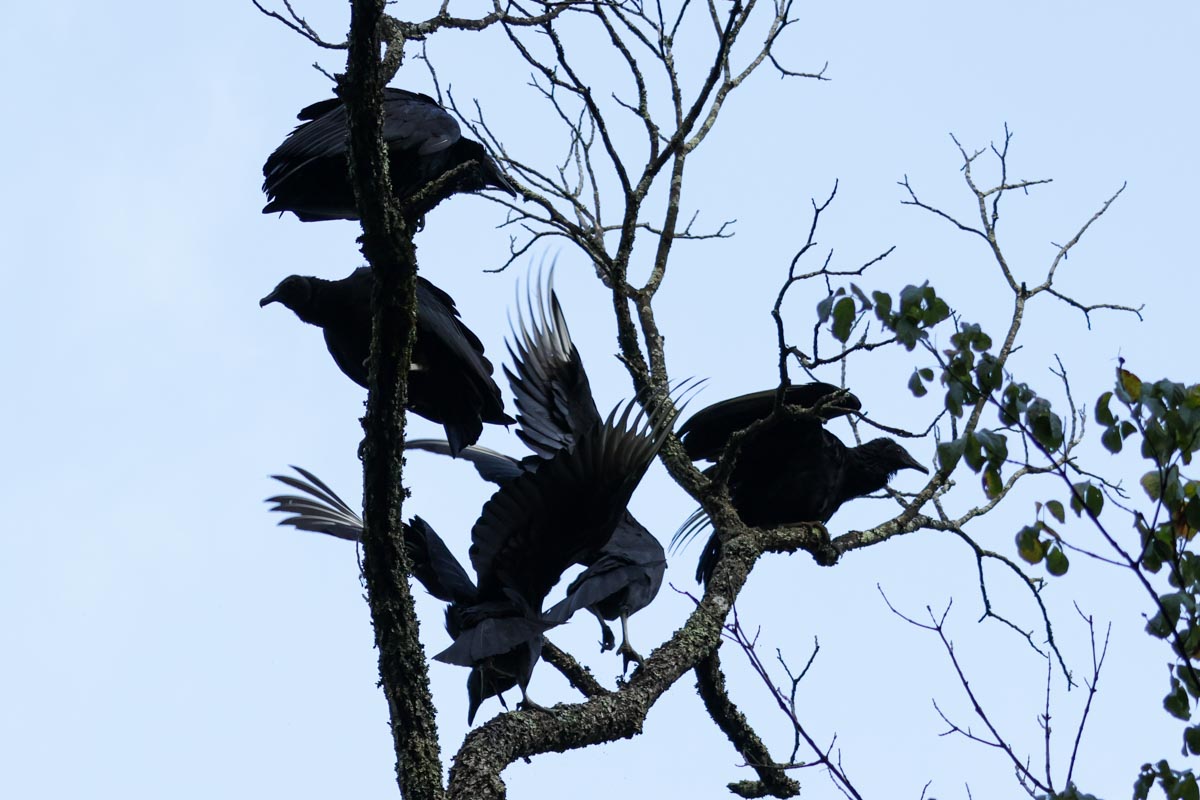There is a roost of black vultures in the park next to me, and a few times a year they venture into my yard. They just made one of their infrequent appearances, around thirty birds resting and sunning near the creek. As the day warmed, they slowly took off in small groups to fly in search of their next meal.
Black vultures often roost with turkey vultures. Their association is thought to have mutual benefits. Black vultures don’t have a good sense of smell and rely on the excellent olfaction of turkey vultures to find prey. With a stronger bill, black vultures can tear hides that are too tough for turkey vultures. Sometimes this can backfire on turkey vultures since they tend to forage alone, while black vultures often travel in flocks. With larger numbers, they may drive turkey vultures off their meal. However, it seems for the most part their relationship is symbiotic.
Vultures are generally seen in dead trees, since it is hard for them to maneuver a landing with their five-foot wing span through leaves. It is always exciting when they visit, since as they fly around from one decaying tree to another their weight can cause the branches to break. As I stood nearby, several large limbs broke off and crashed to the ground. This picture is taken with a telephoto lens since I didn’t want to stand directly below them as tree limbs rained down.
Vultures in the U.S. are doing well, and the population of black vultures have been increasing. But in Asia and Africa it’s a different story. Their numbers plummeted in India when vultures scavenged the carcasses of domestic cattle. The cows had been fed a drug apparently safe for people that poisoned them. In Africa, vultures are deliberately killed for their parts as good luck charms and medicines, and by poachers who poison animal carcasses. In killing the birds, their presence doesn’t alert park rangers to illegal hunting. Just last month 150 critically endangered vultures were deliberately killed eating buffalo carcasses tainted with poison in two separate incidents in Africa.
The targeting of vultures is concerning since they are the ultimate recyclers, performing important ecological services. They clean up remains that predators leave behind, ensuring that harmful substances and pathogens found in dead animals are safely removed. And as I saw in my yard, they also help prune out dead branches, speeding up decomposition and the forest’s ability to regenerate quickly. I consider them good neighbors, though to be honest I am glad they are just occasional guests rather than roosting in my yard.
